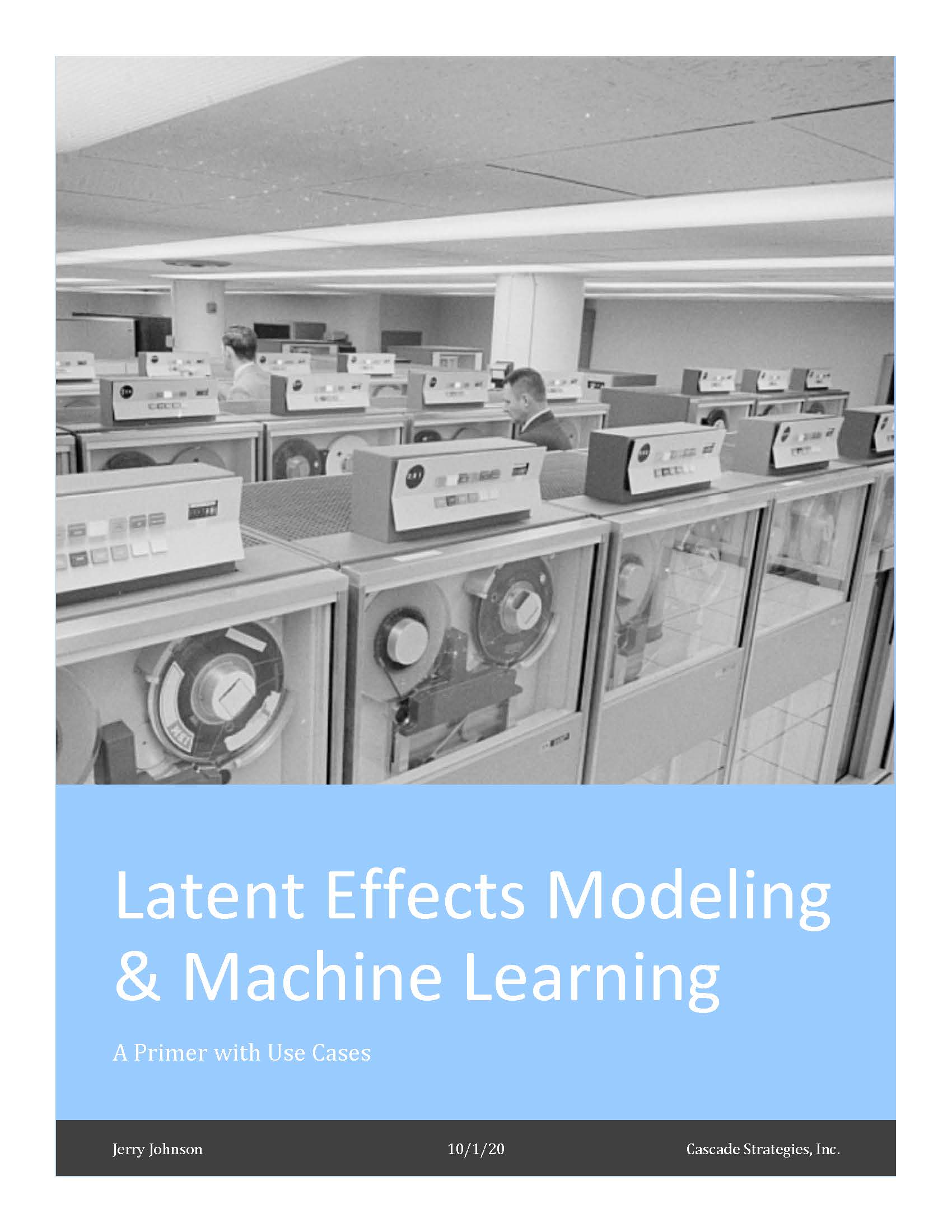
Aug
The Future Is Here
“Mitigating the risk of extinction from AI should be a global priority alongside other societal-scale risks such as pandemics and nuclear war.”
With just 22 words, we are ushered into a future once heralded in science fiction movies and literature of the past, a future our collective consciousness anticipated but has now taken us by surprise upon the realization of our unreadiness. It is a future where machines are intelligent enough to replicate a growing number of significant and specialized tasks. A future where machines are intelligent enough to not only threaten to replace the human workforce but humanity itself.
Published by the San Francisco-based Center for AI Safety, this 22-word statement was co-signed by leading tech figures such as Google DeepMind CEO Demis Hassabis and OpenAI CEO Sam Altman. Both have also expressed calls for caution before, joining the ranks of other tech specialists and executives like Elon Musk and Steve Wozniak.
Earlier in the year, Musk, Wozniak, and other tech leaders and experts endorsed an open letter proposing a six-month halt on AI research and development. The suggested pause is presumed to allow for time to determine and implement AI safety standards and protocols.
Max Tegmark, physicist and AI researcher at the Massachusetts Institute of Technology and co-founder of the Future of Life Institute, once held an optimistic view of the possibilities granted by AI but has now recently issued a warning. He remarked that humanity is failing this new technology’s challenge by rushing into the development and release of AI systems that aren’t fully understood or completely regulated.
Henry Kissinger himself co-wrote a book on the topic. In The Age of AI, Kissinger warned us about AI eventually becoming capable of making conclusions and decisions no human is able to consider or understand. This is a notion made more unsettling when taken into the context of everyday life and warfare.
Working With AI
We at Cascade Strategies wholeheartedly agree with this now emerging consensus and additionally, we believe that we’ve been obedient in upholding the responsible and conscientious use of AI. Not only have we long been advocating for the “Appropriate Use” of AI, but we’ve also made it a hallmark of how we find solutions for our client’s needs with market research and brand management.
Just consider the work we’ve done with the Expedia Group. For years, they’ve utilized a segmentation model to engage with their lodging partners by offering advice that could lead to the partner winning a booking over a competitor. AI filters through the thousands of possible recommendations to arrive at a shortlist of the best selections optimized for revenue.
With the continued growth and diversification of their partners, they then needed a more effective approach in engaging and appealing to them, something that focuses more on that associate’s behavior and motivations. We came up with two things for Expedia: a psychographic segmentation formed into subgroups based on patterns of thinking, feeling, and perceiving to explain and predict behavior, and more importantly, a Scenario Analyzer that utilizes the underlying AI model but now delivers recommendations in very action-oriented and compelling messaging tailor-fit for that specific partner.
The best part about the Scenario Analyzer is whether the partner follows any of the advice recommended or does nothing, Expedia still stands to make a profit while maintaining an image of personalized attentiveness to their partner’s needs. And ultimately, it’s the partner who gets to decide, not the AI.

Copyright Tara Winstead
Our Future With AI
This is how we view and approach AI- it’s not the end-all, be-all solution but rather an essential tool in increasing productivity and efficiency in tandem with excellent human thinking, judgment, and creativity. Yes, it is going to be part of our future but in line with the new consensus, we believe that AI shaped by human values and experience is the way to go with this emerging and exciting technology.

Aug
How Can Healthcare Companies Identify Who Needs Remediation Programs?
jerry9789 0 comments artificial intelligence, Burning Questions
What Is Remediation?
The Cambridge Dictionary defines remediation as “the process of improving or correcting a situation.” Remediation programs are commonly employed in teaching and education wherein they address learning gaps by reteaching basic skills with a focus on core areas like reading and math. And as pointed out in an understood.org article, remedial programs are expanding in many places in our post-COVID 19 world.
In healthcare, there’s a wide range of remediation programs, or “remedial care,” diversified based on their end goal which may include smoking cessation, anti-obesity, weight reduction, diet improvement, exercise, heart-healthy living, alcoholism treatment, drug treatment, and more. But how do you identify the people who need remedial care the most?
Who Needs Remediation?
You might say you can tell who needs remedial care by just looking at the physical aspect of the prospective patient, but this is a shortsighted answer to the question. And what about those who need remedial care for a heart-healthy lifestyle? Surely you can’t tell a likely candidate for this remediation program with just one look alone.
It goes deeper than that. What if you, a healthcare representative, could only devote remedial care to a select few individuals given limited resources and time but you want to make sure that the whole remediation program is successful by achieving its intended goals? Just imagine all that time, effort and resources spent only for the patient to relapse back into their old ways not too long after program completion- or even in the middle of the remediation process itself.
Deep Learning and Remediation
This is where deep learning comes in. Also known as hierarchical learning or deep structured learning, Health IT Analytics defines deep learning as a type of machine learning that uses a layered algorithmic architecture to analyze data. In deep learning models, data is filtered through a cascade of multiple layers, with each successive layer using the output from the previous one to inform its results. Deep learning models can become more and more accurate as they process more data, essentially learning from previous results to refine their ability to make correlations and connections.
Deep learning models handle and process huge volumes of complex data through multi-layered analytics to provide fast, accurate, and actionable results or insights. When applied to the scenario we mentioned beforehand, deep learning filters through that multitude of patient data and prioritizes those who need remedial care the most.
You can also align its findings to effectively identify individuals who will not only return monetary value to your healthcare brand, but at the same time are most likely to “engage” or participate in programs offered by your company, such as wellness, diet, fitness or exercise. They can also be the best people to commit to avoiding poor lifestyle choices, such as overeating, smoking, and alcohol, helping guarantee the success of the remediation program.
With a combination of three decades of market research experience and conscientious use of AI, Cascade Strategies has been helping healthcare organizations develop advanced models to handle, filter and identify the likeliest of candidates for their program purposes. Cascade Strategies helps industry professionals not only recognize their ideal customers but also reach out to them with some of the most effective and award-winning marketing campaigns, thanks to our array of services such as Brand Development Research and Segmentation Studies. To see more examples of how we help leading worldwide companies achieve their goals, please visit our website.
Here are some of our suggestions for further reading on deep learning and healthcare:
https://builtin.com/artificial-intelligence/machine-learning-healthcare
https://research.aimultiple.com/deep-learning-in-healthcare/
https://healthitanalytics.com/features/types-of-deep-learning-their-uses-in-healthcare

Jan
Do You Need To Hire A Data Scientist?
jerry9789 0 comments artificial intelligence, Burning Questions
Is It Time To Hire A Data Scientist?
Data and analytics have taken the business world by storm – finally! It’s been a long time coming though many may say they’ve always used data to support decision making. While true for some, the rise of Data Science from the back office to the boardroom conversations as the most in-demand position is relatively new. From finance and manufacturing to marketing and operations, data science has extended its hand to have application in almost all business aspects.
But what makes this role in such high demand? If you’re contemplating whether or not to build an in-house team, we’ll shed some light on the role Data Scientists play and considerations you’ll want to understand before making a decision.

Jan
Curious About AI in Marketing? 7 Critical Questions
jerry9789 0 comments artificial intelligence, Burning Questions
Artificial Intelligence(AI) has recently been integrated into marketing and is still in its early stages. It makes automated decisions based on available data and audience observations or economic trends that impact marketing. By doing so, it enables marketers to gain more insight and understanding of their target audiences.
However, a business must comprehend how AI Marketing works and its effects before adopting it. Here are seven questions every company interested in AI Marketing should ask themselves.

Dec
Latent Effects Modeling with AI & Machine Learning
jerry9789 0 comments artificial intelligence, Burning Questions
We’ve been posting opinions and comments that urge marketers to “get over” artificial intelligence (AI). To dive into AI’s veritable treasure house of research tools and insights, instead of circling it warily, for fear of banging into a “disruption” moment.

Marketers: use advanced analysis techniques for deeper insights
So, I hereby plant the flag of AI for the regular guy (or gal, of course) — well, at least for the professional who wants to use precise and accurate data to propel insights that simply wouldn’t be perceptible with traditional approaches to analysis.

Dec
An Artificial Intelligence Glossary of Common Terms
jerry9789 0 comments artificial intelligence, Burning Questions
Developing a basic understanding of use-cases, trends, and applications for Artificial Intelligence (AI) is helpful to understand the context in which AI is deployed. Keep in mind “AI” is sometimes considered too broad to be a distinct “field.” Rather it is a technology “concepts” with clarifying needed to properly frame discussions on the topic. Therefore we’ve assembled broad definitions to help readers develop a basic vocabulary for communicating about the subject. Think of this glossary as similar to the old Berlitz travel guides of “essential terms” for a given language.
Advanced Analytics

AI introduces a whole new vocabulary to marketing.
A part of data science that uses high-level methods and tools to focus on projecting future trends, events, and behaviors. This gives organizations the ability to perform advanced statistical models such as ‘what-if’ calculations, as well as future-proof various aspects of their operations. The term is an umbrella for several subfields of analytics that work together in their predictive capabilities.

Nov
Applying AI: Healthcare Enrollment Optimization
Aleksey 0 comments artificial intelligence, Burning Questions

Proper application of AI techniques can yield clarity and precision of insights.
Here’s a case where AI rolled into the ongoing rollout of the Affordable Care Act (ACA). To avoid getting lost in the weeds, let’s just recall that there were big-money battles involving healthcare providers, the Federal government, and the confused, newly ACA-insured and wanted-to-be insured.

Nov
Truth to Marketers: AI is a tool, not THE solution
Aleksey 0 comments artificial intelligence, Burning Questions

Capable professionals know AI is a tool to aid solving problems. Alone it is not a solution.
Our previous post urged fellow marketers to “get over” the artificial intelligence (AI) hype. To stop thinking it’s all about “disruptive,” high-tech tools on the bleeding edges of the frontier. The VR goggles. The eye-tracking studies. The neuroscience applications.
Yes, there are plenty of far edges out there, and we’re often leading them for our clients from the edge into the everyday. But look, today, AI is disruptive only if you didn’t see it coming years ago. It’s now hanging out in the research tool shed with longtime favorites like (examples?)

Nov
About AI: Let’s Disrupt Your Idea of Disruption
Aleksey 0 comments artificial intelligence, Burning Questions

How Artificial Intelligence is frequently viewed from the C-Suite.
The marketing industry has been bombarding itself for years with ways to “manage” or “harness” the “disruption” brought upon us by artificial intelligence, machine learning,[insert advanced marketing buzzword here] and the like.
What do we mean by “disruption?”
We mean “OMG, scary, out-there science that’s escaped from the lab and now everyone has to wear VR goggles and get their galvanic skin responses and eyeballs tracked! WTF! How the hell do we do all that?”










